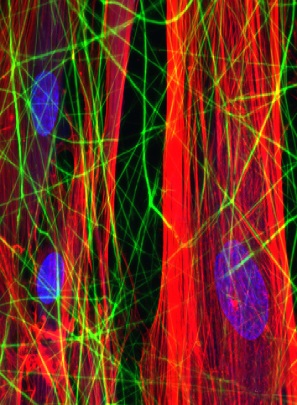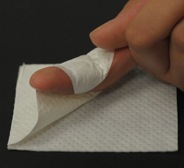Biomaterials

Tropoelastin is the monomeric form of the biopolymer elastin, an extracellular matrix component found in many tissues such as the skin, vessels, lungs, and ligaments. Since elastin is only made during embryonic and early postnatal development, it has created a need for laboratory production of tropoelastin to incorporate into therapies and treatments for a variety of ailments including vascular replacement and severe burns. We have used the human genes for tropoelastin and produced it in a recombinant expression system to produce and purify gram quantities of tropoelastin.
Tropoelastin is produced in a recombinant bacterial system using a 75L working volume bioreactor with the capabilities of controlling the dissolved oxygen, pH, temperature, and agitation to provide an optimal growth environment over extended periods of time. At the end of the fermentation, the bacterial cell culture is harvested and passed through a microfluidizer to break up the cells. Afterwards, the cell paste, inclusion bodies containing the tropoelastin, and other insoluble proteins are harvested in a continuous flow centrifuge. A strong acid digest and a series of ion exchange chromatography columns are used to purify the tropoelastin. The final product is lyophilized and stored as a ready to use product for making a variety of biomaterials.
We are incorporating the purified tropoelastin into a variety of vascular and burn applications to allow for the replacement of commercially available artificial devices, as well as utilizing tropoelastin for novel treatments to improve on current standards of care.
